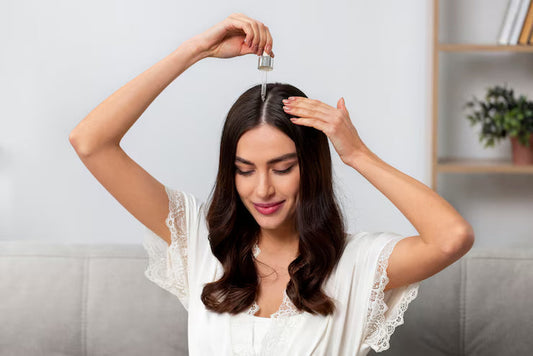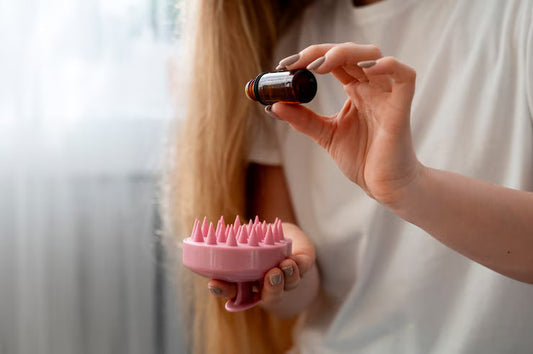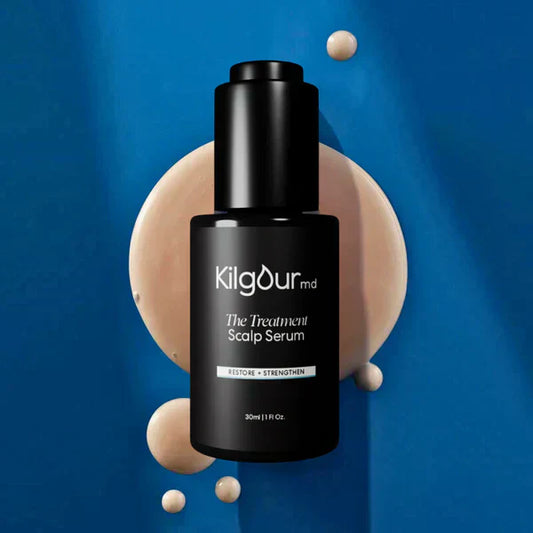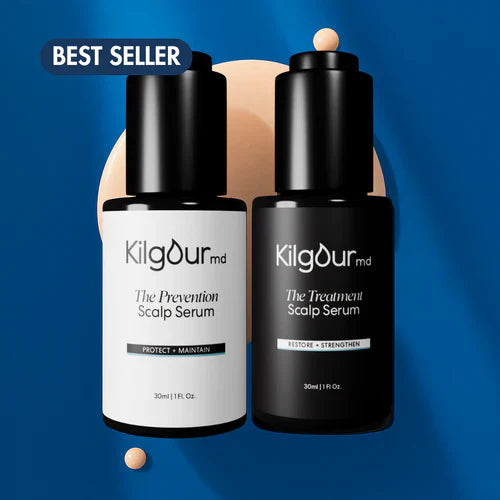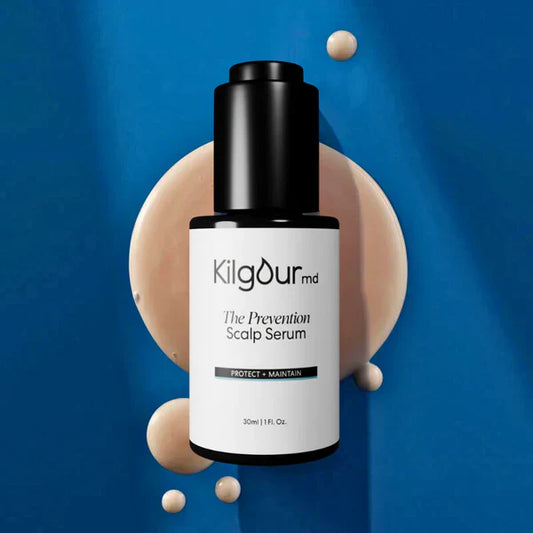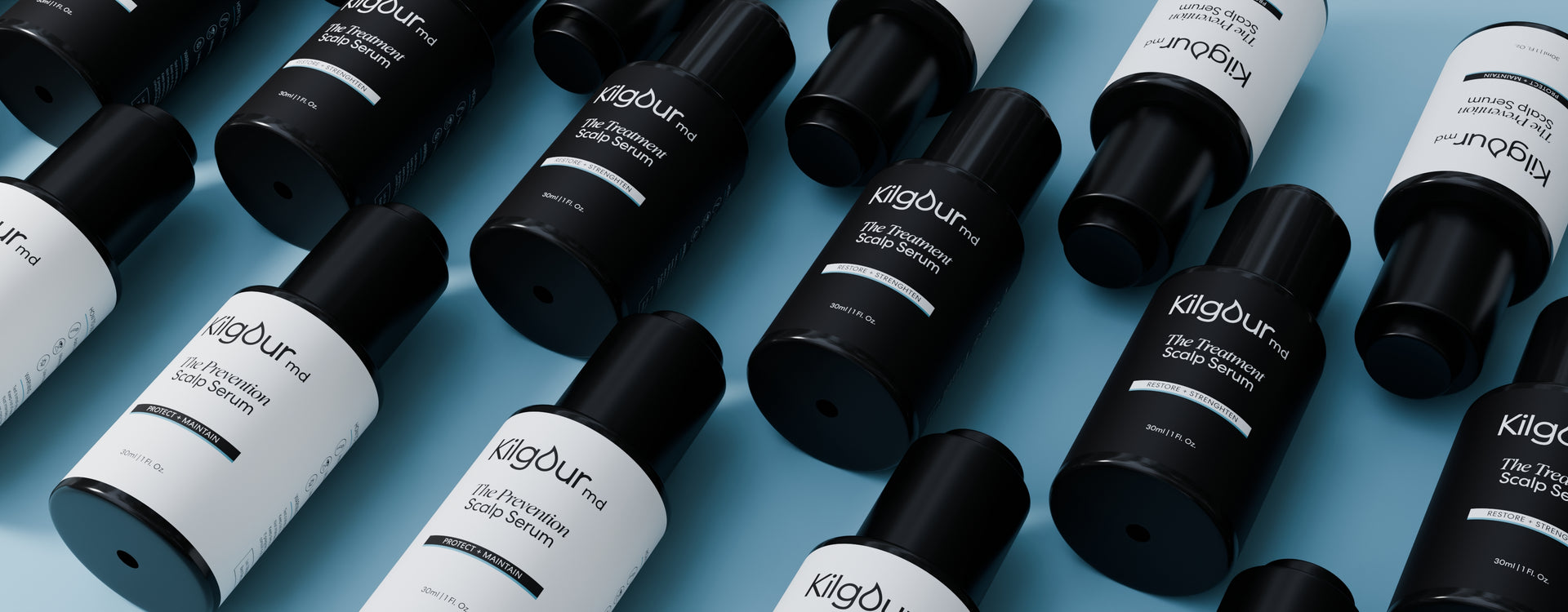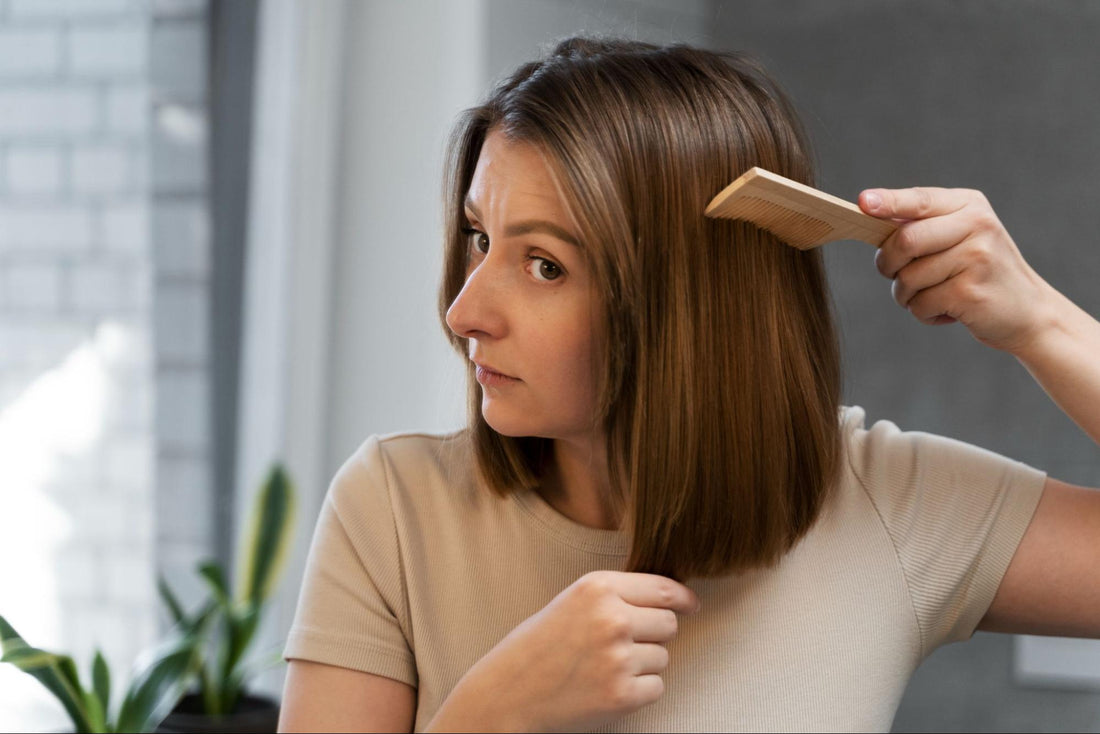
Hair Thinning Prevention Treatment: How to Regrow Your Hair Naturally
Introduction
Healthy hair isn't just about looking good; it's a reflection of our internal health and can significantly impact our self-confidence. However, many people deal with hair thinning, a condition that affects both men and women of all ages.
Hair thinning prevention, treatment, and the desire to regrow hair naturally have become increasingly important topics for those affected.
Understanding the reasons behind hair thinning is crucial, and KilgourMD provides insights into the root causes of hair thinning, offering guidance on how to address them effectively. While some factors are beyond our control, others can be managed with the right approach.
For those seeking personalized solutions, KilgourMD's Regimen Builder could be the first step towards creating a customized plan to nurture your hair back to health. Embracing natural hair regrowth solutions not only tends to be gentler on the body but also aligns with a holistic view of well-being.
Let's explore this journey of revitalizing your hair, looking at both modern treatments and natural remedies that complement KilgourMD's approach to combating age-related hair thinning.
Understanding Different Types of Hair Thinning
When it comes to hair thinning, not all conditions are created equal. Several types of hair-thinning conditions exist, each with unique causes and symptoms.
1. Androgenic Alopecia (Male or Female Pattern Baldness)
The most common type of hair thinning, androgenic alopecia, is also known as male or female pattern baldness. It is triggered by genetic factors and hormonal changes, leading to a gradual thinning of hair, particularly on the crown and frontal scalp.
2. Alopecia Areata
Alopecia areata is a condition where your body's immune system attacks your hair follicles, leading to patchy hair thinning.
3. Telogen Effluvium
Telogen effluvium, a temporary condition often linked to stress or trauma, results from an increased number of hair follicles entering the resting phase with increased shedding.
4. Anagen Effluvium
Anagen effluvium occurs when hair follicles are forced into the resting phase due to chemotherapy or radiation therapy.
The prevalence of these conditions underscores the impact of hair thinning on individuals' lives. Losing one's hair can significantly affect self-esteem and mental well-being. So it's vital to seek proper treatment options early on.
Feel free to explore our product integrity and how we combine nature with science for effective solutions that address these various types of hair thinning.
Conventional Approaches to Treating Hair Thinning

When it comes to treating hair thinning, there are various medical options available. Here are some common methods:
Medications
The first line of defense against hair thinning often involves using over-the-counter medications like minoxidil (Rogaine). Minoxidil works by increasing blood supply to the hair follicles and extending the growth phase of the hair cycle.
This can result in thicker hair strands and more coverage over time. It is applied directly to the scalp and is known for being easy to use.
On the prescription side, finasteride (Propecia) is a pill that blocks the hormone responsible for male pattern baldness. It has been proven to be effective, but it's important to consider the pros and cons before starting this medication. Potential side effects include sexual problems and an increased risk of prostate cancer.
Surgical Options
For those who want a more permanent solution, hair transplants have advanced significantly in recent years. This procedure involves moving healthy hair follicles from one part of the scalp to areas with thinning hair, creating a natural-looking density.
PRP Therapy
Another innovative treatment is platelet-rich plasma (PRP) therapy, which entails injecting concentrated platelets from your own blood into the scalp to stimulate healing and hair growth.
While these conventional methods show potential, they may not work for everyone. If you're interested in exploring other approaches to address hair thinning, you might also consider adopting certain hair wellness habits or seeking advice from specialists who can provide personalized recommendations based on your specific situation.
Additionally, familiarizing yourself with scalp care FAQs can help address any concerns you may have about the products or treatments available.
Lifestyle Modifications for Preventing Hair Thinning and Promoting Regrowth

When it comes to preventing hair thinning and encouraging regrowth, lifestyle choices play a pivotal role. The body requires a symphony of nutrients to foster a flourishing mane, and the mind's equilibrium can significantly affect the health of your hair.
Healthy Diet: The Foundation of Hair Vitality
- Hair is primarily made up of keratin, a protein, which means your diet should include ample protein sources like eggs, nuts, beans, fish, and lean meats.
- A deficiency of iron can lead to hair shedding. Incorporate iron-rich foods such as spinach, lentils, and red meat into your meals.
- Vitamins A, C, D, E, zinc, and selenium support the hair growth cycle. Berries, sweet potatoes, avocados, and almonds are not just delicious but also teeming with these nutrients.
- Water plays a crucial role in transporting these essential nutrients to the hair follicles.
Stress Management: Cultivating a Stress-Free Sanctuary for Your Scalp
- These practices can lower stress hormone levels which otherwise can signal hair follicles to enter the resting phase.
- Physical activity boosts circulation and reduces stress—two factors that can help maintain healthy hair growth.
- Aim for 7-9 hours per night to allow your body to repair and regenerate hair cells.
Incorporating these nutritional elements into your daily routine can be transformative. For those seeking additional scalp care solutions, developed by dermatologists like KilgourMD, they offer innovative products designed to nurture thinning hair back to robust health.
Their dermatologist-developed hair growth products have been shown to reduce hair fall by up to 30% in two months and stimulate hair follicle growth by up to 200%, all without any known side effects.
Should you need personalized advice or wish to explore more targeted treatments for your unique situation, don't hesitate to contact KilgourMD for professional guidance.
Nurturing Your Hair Through Proper Care Routines
Your haircare routine can have a profound impact on the health of your hair and scalp. Certain practices, such as hairstyles that pull the hair tightly, can contribute to hair thinning. High-tension hairstyles including ponytails, braids, or buns exert constant pressure on the hair roots.
Over time, this can lead to a condition called traction alopecia, where the hair follicles are damaged and fail to produce new hair.
Beyond just styling, it's essential to cultivate a healthy scalp care routine. A well-nourished and clean scalp sets the stage for healthy hair growth. Here are a few elements to consider:
- Regular Cleansing: Use a mild shampoo that suits your hair type and cleanses your scalp regularly to remove dirt, excess oil, and product build-up.
- Scalp Massage: This not only feels great but also stimulates blood flow to your scalp which can encourage hair growth.
- Moisturizing: Just like your skin, your scalp needs hydration to maintain its health. Opt for hydrating serums or oils that don’t clog your follicles, like those offered by Kilgour MD.
- Avoid Excessive Heat Styling: High heat can weaken your hair strands and cause breakage.
Incorporating these practices into your daily routine can help reduce the risk of premature hair thinning and promote healthier locks. If you're unsure whether you need prevention or treatment products for your scalp, Kilgour MD's guide can help you make an informed decision about which product is best suited for your needs.
Exploring the Potential of Natural Ingredients for Hair Regeneration
Regenerating hair naturally requires a blend of essential ingredients that work together to stimulate growth. Essential oils like Rosemary and Lavender are well-known for their potential in this area.
Rosemary Oil
Rosemary oil improves blood flow to the scalp, creating an ideal environment for hair growth. You can easily make a DIY treatment by massaging a few drops of diluted Rosemary oil into your scalp, leaving it on for a few minutes, and then rinsing it out.
Lavender Oil
Lavender oil has properties that may help stimulate hair growth. Its calming scent also acts as a stress reliever - remember, less stress can mean less hair thinning!
Aloe vera
Another natural ingredient to consider is aloe vera, a plant known for its benefits to hair health. Aloe vera contains enzymes that can help remove dead skin cells on the scalp, which can block hair follicles. It also contains vitamins A, C, and E that support cell turnover, leading to healthier cell growth and shiny hair.
You can apply fresh Aloe vera gel directly to your scalp, leave it on for an hour or so, and then rinse it off for a simple yet effective treatment.
If you're interested in learning more about natural solutions for hair thinning and achieving a healthier scalp, you can dive deeper into our wealth of knowledge on our blog.
Unlock the secrets to a healthier scalp, explore effective solutions for hair thinning, and embark on a journey to revive your locks with expert insights and practical tips from our comprehensive resource.
Taking a comprehensive approach to hair health can make a big difference in preventing hair thinning and promoting natural hair growth. It's not just about what you put on your hair externally, but also how you nourish your body, manage stress, and take care of your scalp.
Remember:
- Your journey to healthier hair may involve using natural ingredients, making lifestyle changes, and following proper hair care routines.
- If you're dealing with severe hair thinning, it's important to seek guidance from healthcare professionals. The experts at KilgourMD can offer personalized advice based on your specific needs.
Start taking action today to improve the health of your hair! Whether it's adjusting your diet or trying out natural remedies, finding the right combination of strategies could lead to significant results.
And if you require specialized assistance, don't hesitate to seek professional help.


